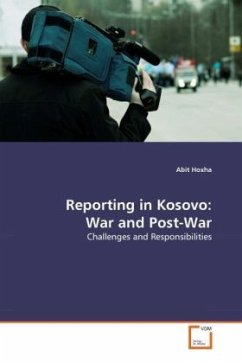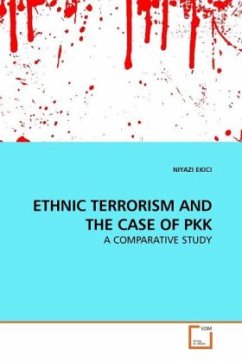
Nationalism in Post-Milosevic Serbia
An Empirical Investigation into the Changes of Nationality-Related Attitudes
Versandkostenfrei!
Versandfertig in 6-10 Tagen
52,99 €
inkl. MwSt.

PAYBACK Punkte
26 °P sammeln!
By using empirical data, this research considers whether there are changes in the saliencies of attitudes about nationality-related issues in contemporary Serbia, and if so, whether they can be linked to the political context of the period. Demonstrating the susceptibility of the saliencies of these attitudes to external influence is its main goal. I maintain that this research is best framed by a constructivist approach to the study of nationalism. This thesis also addresses the ongoing debate concerning the origins of the late eighties and early nineties resurgence of nationalism in Serbia. ...
By using empirical data, this research considers
whether there are changes in the saliencies of
attitudes about nationality-related issues in
contemporary Serbia, and if so, whether they can be
linked to the political context of the period.
Demonstrating the susceptibility of the saliencies
of these attitudes to external influence is its
main goal. I maintain that this research is best
framed by a constructivist approach to the study of
nationalism. This thesis also addresses the ongoing
debate concerning the origins of the late eighties
and early nineties resurgence of nationalism in
Serbia. A particular emphasis is devoted to the
consideration of the role of the political elites in
the emergence of the ethnic conflicts of former
Yugoslavia and in general.
The period examined in most depth is 2000-02
encompassing the Milo evi regime change.
Additionally, an analysis of the nationalizing
content of the most read newspaper Blic is conducted
in order to provide evidence of the transmittance of
the nationalizing potential of political events
and processes through the media to the public.
whether there are changes in the saliencies of
attitudes about nationality-related issues in
contemporary Serbia, and if so, whether they can be
linked to the political context of the period.
Demonstrating the susceptibility of the saliencies
of these attitudes to external influence is its
main goal. I maintain that this research is best
framed by a constructivist approach to the study of
nationalism. This thesis also addresses the ongoing
debate concerning the origins of the late eighties
and early nineties resurgence of nationalism in
Serbia. A particular emphasis is devoted to the
consideration of the role of the political elites in
the emergence of the ethnic conflicts of former
Yugoslavia and in general.
The period examined in most depth is 2000-02
encompassing the Milo evi regime change.
Additionally, an analysis of the nationalizing
content of the most read newspaper Blic is conducted
in order to provide evidence of the transmittance of
the nationalizing potential of political events
and processes through the media to the public.












